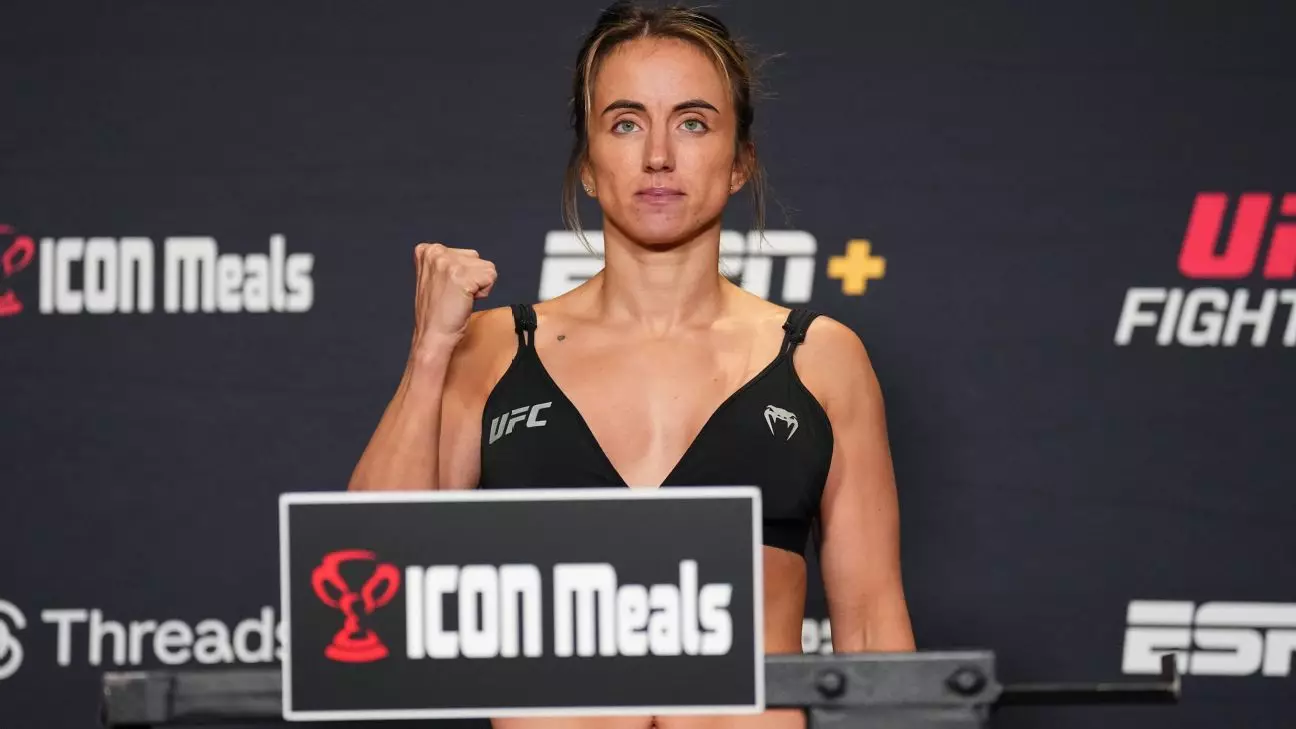In a shocking twist of events, UFC’s highly anticipated main event was abruptly called off just moments before the fighters were scheduled to step into the cage. Maycee Barber’s inability to secure a medical clearance not only disrupted the evening’s fight card but also cast a shadow over what was supposed to be a significant moment in her career. Just a week prior, Barber had expressed confidence, ready to face off against Erin Blanchfield in what many expected to be an exhilarating contest in the women’s flyweight division.
The chaotic nature of professional fighting often leaves fans and fighters alike grappling with uncertainties. Barber, returning to the octagon after a year’s hiatus due to both injuries and a severe illness, faced the weight of expectation and the physical strain that comes from an extended absence. Missing weight by half a pound, only compounded her difficulties, leading to a fine and a loss of part of her purse to her opponent. Fight fans often celebrate the raw intensity of combat sports, but they must also acknowledge the unpredictable factors, like injuries and illnesses, that can upend well-laid plans in an instant.
The Tension of Anticipation: Team Dynamics and Fighter Preparedness
Blanchfield’s immediate reaction to the cancellation reveals the rollercoaster of emotions athletes experience in high-stakes situations. Entering the Octagon is not just about physical readiness; it’s also about a mental state primed for competition. The arrival of UFC Chief Business Officer Hunter Campbell in her dressing room signaled a grim reality. Blanchfield’s disbelief at the news underlines how crucial mental preparation is for fighters, who often thrive on a specific mindset leading to their moment in the limelight.
Moreover, this incident sheds light on the dynamics within an athlete’s support network. Blanchfield’s coaches were quick to advise against rebooking the fight against Barber, suggesting a strategic focus on higher-level competition instead. This decision reflects an emerging trend among fighters who see their careers as not just about quick match-ups but about building a sustainable path to championship contention. By not entertaining the idea of a rematch against Barber, Blanchfield demonstrates her readiness to elevate her own stakes, asserting her place in the competitive landscape of the UFC.
Coping with Disappointment: The Importance of Resilience
The aftermath of such cancellations teaches valuable lessons about resilience. Athletes must continuously recalibrate their goals and expectations. Barber’s setback serves as a stark reminder that the path to greatness is often riddled with hurdles, whether they manifest in the form of physical setbacks or external pressures. The narrative surrounding her comeback is far from over, as she must now contend not only with health challenges but also the urgency to return to form.
As fans, we are left pondering the implications of this disruption. What does it mean for the trajectory of both fighters? In the world of sports, especially combat sports, the only certainty is uncertainty. Each fight carries with it untold stories of perseverance, ambition, and sometimes, heart-wrenching disappointment. The UFC’s commitment to delivering electrifying bouts remains steadfast, but every fighter’s journey underscores the fragility of the moment when anticipation meets reality.

